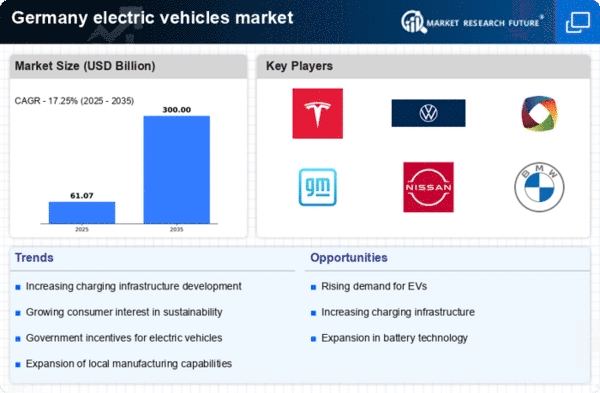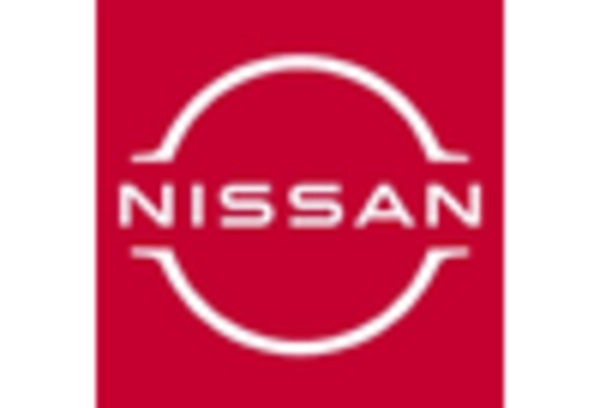Consumer Awareness and Demand
Consumer awareness regarding environmental issues and the benefits of electric vehicles is steadily increasing in Germany. This heightened awareness is leading to a growing demand for electric vehicles, as consumers seek sustainable alternatives to traditional combustion engines. Surveys indicate that around 60% of potential car buyers in Germany are considering electric vehicles as their next purchase. This shift in consumer preferences is significantly impacting the electric vehicles market, prompting manufacturers to enhance their offerings and marketing strategies to cater to this evolving demand. The trend suggests a promising future for electric vehicle adoption in the country.
Partnerships and Collaborations
Strategic partnerships and collaborations among automotive manufacturers, technology firms, and energy providers are becoming increasingly prevalent in the electric vehicles market. These alliances facilitate the sharing of expertise and resources, enabling faster development and deployment of electric vehicle technologies. In Germany, several major automotive players have formed joint ventures to enhance battery production and charging infrastructure. Such collaborations are expected to accelerate the growth of the electric vehicles market, as they address key challenges such as range anxiety and charging accessibility, ultimately making electric vehicles more appealing to consumers.
Regulatory Framework Enhancements
The electric vehicles market in Germany is experiencing a robust transformation due to the implementation of stringent regulatory frameworks aimed at reducing carbon emissions. The German government has set ambitious targets to achieve climate neutrality by 2045, which necessitates a significant shift towards electric mobility. This regulatory environment encourages manufacturers to innovate and invest in electric vehicle technologies. As of 2025, approximately 25% of new vehicle registrations in Germany are expected to be electric, driven by these regulations. The electric vehicles market is thus poised for growth as compliance with these regulations becomes essential for automotive manufacturers.
Investment in Research and Development
Investment in research and development (R&D) within the electric vehicles market is crucial for fostering innovation and improving vehicle performance. German automotive companies are allocating substantial resources to R&D, focusing on battery technology, autonomous driving, and vehicle efficiency. In 2025, it is estimated that R&D spending in the electric vehicles sector will exceed €5 billion, reflecting the industry's commitment to advancing electric mobility. This investment not only enhances the competitiveness of German manufacturers but also contributes to the overall growth of the electric vehicles market, as new technologies emerge to meet consumer expectations.
Sustainability Initiatives and Corporate Responsibility
Sustainability initiatives and corporate responsibility are gaining traction among automotive manufacturers in Germany, influencing the electric vehicles market. Companies are increasingly adopting sustainable practices in their operations, from sourcing materials to manufacturing processes. This commitment to sustainability resonates with consumers, who are more likely to support brands that prioritize environmental responsibility. As of 2025, it is projected that over 70% of German automotive companies will have integrated sustainability into their core business strategies. This trend not only enhances brand loyalty but also drives the growth of the electric vehicles market, as consumers seek to align their purchases with their values.
















